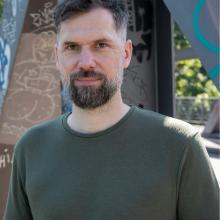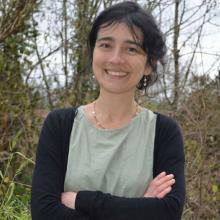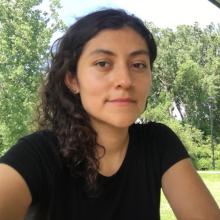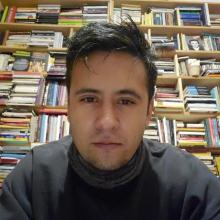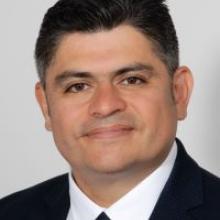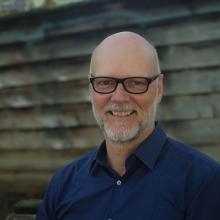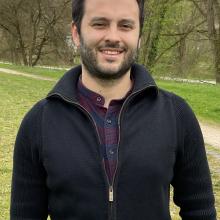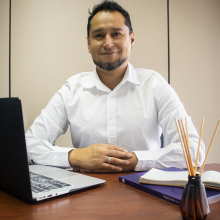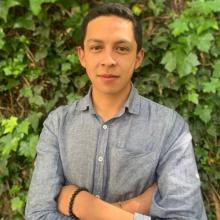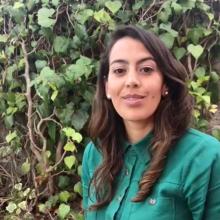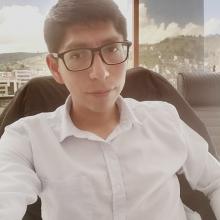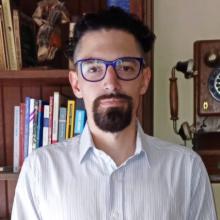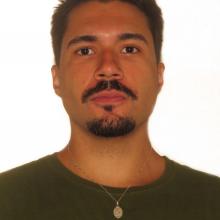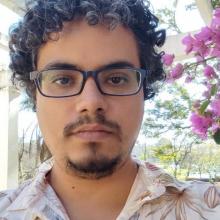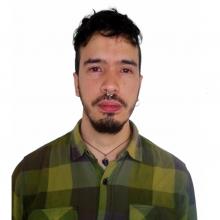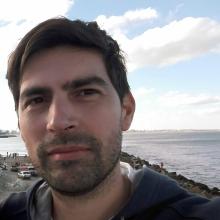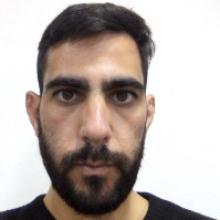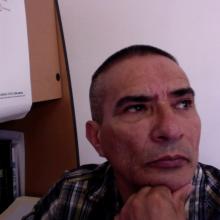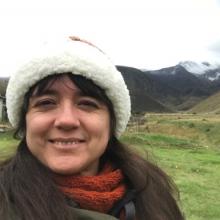Research teams and projects
Universität Bielefeld
Principal Investigator
Postdoc
Rhythms of Re-solidarization in the Face of Violence: Frictions of collectivity and land in Milpa Alta
The project analyzes the resistance to the new General Land Reorganization Program (PGOT) in the case of Milpa Alta, Mexico City.Practices of Territorial Care. An affective analysis of peasant collective strategies in the context of coffee cultivation
The project analyzes the responses of different communities and local organizations in the global south to the challenging conditions created by crises, understanding their ways of life and collective struggles from an affective perspective.Doctoral students
Agro-industrial corporations at the limits of the transformation of land into capital in Latin America. Entangled economic histories in the 20th century
The project analyzes the mechanisms used by KWS Saat and Nestlé to dispose of land in Latin America and their symbolic and ecological implications.'Gran Cacao' and coloniality in the Caribbean: Land grabbing, wealth and power of the Tovars in Aragua, Venezuelay
This project does a collective biography of Tovar family, to investigate the appropriation and concentration of land in Aragua from the second half of the 19th century until the second decade of the 20th century, the consequent generation and accumulation of wealth, as well as the circumscription of these large estates within the global economic structure.Research assistant
Universität Bern
Principal Investigator
Of missionaries and revolutionaries. A history of liberation theology in Latin America (1960-1980)
The project focuses on the broad cultural, social, and economic involvement of pastoral agents and laymen of the progressive Catholic church in urban and rural landscapes of Latin America during the 1960s and 1970s.Postdoc
Consuming chicken in Mercosur.Continuities and changes in food systems and practices in the cities of Paraná, Curitiba and Asunción (since 1990)
The project comparatively addresses local changes in the distribution and consumption of chicken meat. This includes critical debates on the consumption of industrially produced chicken, taking into account contemporary discourses on (good) nutrition, health and wealth.Doctoral students
Internalizing colonialism: agrarian history and inequalities in Brazil
The project compares the formation of agricultural credit institutions and the legal redefinition of land as a financial asset in the Brazilian Empire and the Empire of France in the second half of the 19th century.Research assistant
Facultad Latinoamericana de Ciencias Sociales, Ecuador
Principal Investigator
Wealth and access of land in the 21st century: elites in territorial development in the Andean region
The project addresses the notion of political constellations, from the analysis of the role of elites as actors of territorial governance structures, and the articulation between actors involved in extractive mining activities and landowning elites.Postdoc
The Banana Elites: Historiographical study of the consolidation of banana plantations in the province of Guayas, Ecuador, between 1890 and 1930
The project analyzes the hacienda owners and their influence on the regional social and political fabric in the province of Guayas between 1890 and 1930, before the boom of the banana industry. It will consider land as a capital that allowed an elite to influence social, cultural, political and economic interactions.Doctoral students
The role that landowning elites play in land use planning processes and in territory development strategies: a comparative analysis between Ecuador and Colombia during the neoliberal period
The project studies the role of landowning elites in Ecuador and Colombia in land use planning processes and territorial development strategies.Metal mining and agrarian elites. New dynamics of concentration and land grabbing
The project analyzes the relationships between mining actors and landowning elites in the context of the development of mining projects and how land plays an important role in the process of capital reproduction.Assistant student
Universidade Federal Fluminense - UFF
Principal Investigator
Technique, nature and territorialization strategies of large agricultural producers in MATOPIBA - Brasil
The project analyzes the territorialization process of large agricultural producers in MATOPIBA (Maranhão, Tocantins, Piauí and Bahia) and their relationship with nature based on technology and capitalist accumulation.Postdoc
Agrarian elites and the state: Argentina, Brazil and Mexico during the neoliberal decade (1988-2000) and late neoliberalism (2000-2019)
The project proposes to study comparatively the relationship between the economic elites linked to agricultural and agro-industrial activity from Argentina, Brazil and Mexico and the state during the periods of neoliberal reforms (1988-2000) and the late neoliberalism of the 21st century (2000-2019).Doctoral students
The Commodification of the Brazilian Cerrado: Socio-environmental, cultural and political aspects of agricultural expansion
The main objective of this research is to analyze the expansion of the agricultural frontier in the Brazilian cerrado and its contribution to the process of wealth production through spoliation and the transformation of rural land into income.Agribusiness territories for sustainability in Central America: management, nature valorization and socio-ecological changes
This doctoral project aims to analyze the contemporary forms of production of agribusiness territories through the use of the idea of sustainability in Central America, in order to understand the forms of managerial management, valorization of nature and socio-ecological changes experienced in its implementation process.Research assistant
Universidad de Quilmes
Principal Investigator
Forests in the socio-ecological transition. A perspective for forest history in Gran Chaco. Historical limits of sustainability in a context of capitalist exploitation. (1900-2020)
The project analyzes specific cases of forest evolution that allow a better understanding of the functioning of the socio-ecological transition, its causes and effects in different regions of the Gran Chaco. The specific issues can be related to changes in the area occupied by forests (deforestation or reforestation processes) or to changes in their composition.Postdoc
The role of the International Food and Agribusiness Management Association (IFAMA) in the hegemony of agribusiness in Brazil and Argentina.
The project aims to analyze the International Food and Agribusiness Management Association (IFAMA), questioning its social relevance by sharing economic interests, sociability networks and symbolic references that have shaped the political agenda of the so-called agribusiness in Brazil and Argentina.Doctoral students
Revisiting the border movement: Argentina, Brazil and Chile at the turn of a new century (1889-1929), a comparative history essay
The project seeks to reflect on the process of land commodification in the areas of the advancing food frontier in the late nineteenth and early twentieth centuries, reviewing records, legislation, documents, arrangements, writings. Consolidated and disputed agrarian historiographies when thinking about the role of agriculture in Chile, Brazil and Argentina before the Great Depression of 1929. Café del Oeste paulistaThe forest model and the ecological transformation of the landscape in the Southern Cone. Critical analysis of the model of forest production in the cases of Chile, Argentina and Uruguay from 1980-2020
The project identifies the establishment of "silviculture" as a specific model for the transformation of land into capital in the Southern Cone countries and its ecological transformation of the landscape.Research assistant
The Anthropocene in Argentina. Soil, oil and water. A study of land use in the Colorado River Basin (1960-2020)
This project investigates the use of water resources in the Colorado River Basin in the period 1960-2020 and the socio-environmental deterioration that this has entailed. To this end, it proposes a historical-environmental study of the agro-export and extractivist models of the second half of the 19th and 20th centuries in the basin.Technology at the service of wine quality in Mendoza, (cc. 1970-1990)
The research project is aimed at studying the initial conditions and the role of social actors in the province of Mendoza that resulted modernization of the winemaking process. In particular, this project analyzes the R&D&I process in winegrowing in this province from the late 1960s to the early 1990s.Research associate



